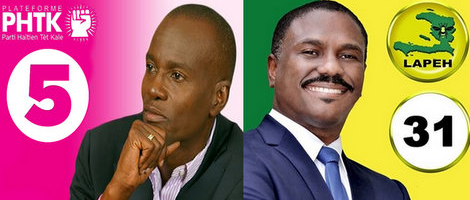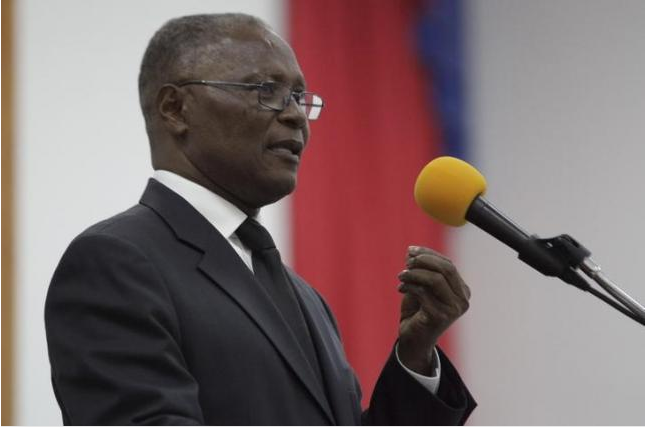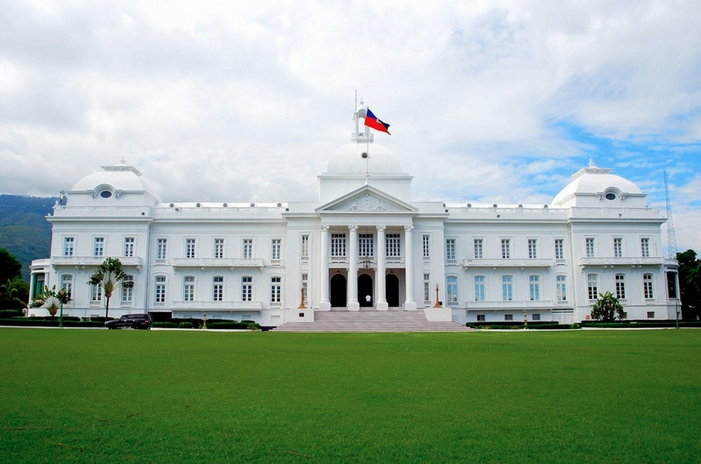
Government-backed candidate Jovenel Moïse (left) was hand picked by former President, Michel Martelly, to be his successor. Jude Celestin (right), opposition-backed candidate and a former contractor, is making another bid at office after losing to Martelly in 2010.
After political dissonance and weak infrastructure led to the dissolution of Haiti’s Parliament in early 2015, focus turned towards the nation’s upcoming Presidential Elections to see if the government could right itself.
The first round of voting went off peacefully in October, but was plagued by numerous outcries of fraud and corruption from activists and human rights groups alike.
In late October, officials declared a necessary run-off vote for candidates Moïse and Celestin, who had secured 33% and 25% of the vote, respectively. Before the election, Moïse (a former banana exporter) was virtually unknown. His victory over Celestin in the first round was pointed to by many as evidence that the election had been rigged in his favor.
Haiti’s law states that, if no candidate receives a mandatory minimum of 50% of the vote in the first round, then there is to be a second round “run-off”. (President Preval’s election to office in 2006 is a notable exception.) The “run-off” vote was originally set to be held on December 27th.
The run-off vote was further postponed for January 24, 2016, but as protestors filled the streets with allegations that any results from the run-off would be further rigged in Moïse’s favor and frustration began to boil over with the threat of violence, officials bowed to the pressure to once again postpone the vote.
Unrest continued in Haiti as citizens looked to February 7th, when President Martelly’s tenure in office was scheduled to end. Many in the government would have liked to see him stay until a successor has been named, but protestors called for him to be ousted from office even before that date.
As February 7th came and went, Martelly went peacefully from office, with no successor in place. In the days following, an agreement was reached by which the opposition-controlled Haitian Parliament (since returned to office) named Mr. Jocelerme Privert as Interim President to govern until a new elections can be held.

Photo via REUTERS/ANDRES MARTINEZ CASARES
The election of Mr. Jocelerme is highly political, as a former member of Jean-Bertrand Aristide’s cabinet, he his heavily lauded by the former president’s supporters (many of whom were among those leading protests over the last few weeks.)
After Jean-Bertrand Aristide was ousted from power some 12 years ago, his Lavalas movement largely dissolved into bickering factions, but it would seem that the tension created amidst charges of fraud in the elections over the last weeks and months has served to, at least temporarily, glue the pieces back together. Jean-Bertrand Aristide’s wife was even reported to have been at the new Interim President’s Inauguration. It stands to note that members of former President Martelly’s party were largely absent as Mr. Jocelerme was sworn in.
New elections are scheduled for April 14, 2016, but the last time an interim president was elected (after Jean-Bertrand Aristide’s administration was toppled back in 2004) it took two years to hold new elections.
We continue to watch closely, and hope for the best in Haiti.
Written by Erin Nguyen on February 18, 2016
Want to Learn More?
For more information on the elections in Haiti, we encourage you to visit Woy Magazine’s webpage; “Woy’s Guide to Understanding Haitian Elections” is a fantastic resource for readers looking to take a closer look at the way Haiti’s political system is supposed to operate.
To hear voices from the people, check out “What Haitian Rap Tells Us About the Haitian Election.”
Additionally, “ ‘We’re back’ – Aristide Allies Toast Haiti’s interim president at palace” does a great job of explaining the party history and division between government backed candidate Moïse and opposition backed candidate Celestin in view of the newly appointed interim leader.
Finally, another interesting and important angle on the Haitian Presidential Elections is how it is affecting Haiti’s Tourism Industry. The recent blurb from Paul Clammer’s Haiti: The Bradt Travel Guide Facebook Page caught our attention when it was shared a few days ago:
I’m having lots of complicated feelings about Haitian tourism over the last couple of days. I’ve seen so much since I…
Posted by Haiti: The Bradt Travel Guide on Sunday, February 14, 2016

